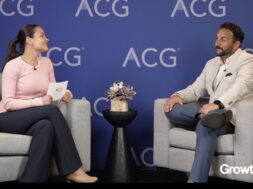How Gifting Carried Interest Can Save on Future Estate Taxes
Successful deals drive carried interest and can build tremendous wealth for private equity professionals, but it can also result in significant future taxes if investors aren't careful.

The name of the game in private equity is carried interest. Successful deals drive carried interest, which can build tremendous wealth for private equity professionals. However, it can also result in significant future taxes that most do not think about—estate taxes.
One of the most important strategies to consider when reducing estate taxes is gifting carried interest in the early stages of a fund’s life to allow for growth of that interest outside of the estate.
When shifting any portion of carried interest into an irrevocable trust outside of the estate, the value and future growth is no longer subject to federal and state estate taxes. This is especially beneficial in reducing a family’s overall estate tax liability and avoiding the possible 40% estate tax rates currently in place on the federal level.
While estate planning is not always the most fun topic to contemplate, there are several compelling reasons to do it now. Consider that:
- Success in a private equity career today, could result in a significant estate tax issue in the future, especially if there is a state estate tax.
- The earlier the gift is made, the more heavily discounted the value of the carried interest will be (and the lower the taxes you will pay today or exemption you utilize).
- The current estate tax exemption is $11,700,000 for individuals (or $23,400,000 per married couple), which will sunset in 2026. New tax proposals could reduce that figure down as low as $5,000,000-$7,000,000 per person—and even if no changes are made, in 2026, the exemption will return to its 2017 level of $5,490,000 per person ($10,980,000 per married couple). There is also the potential for the estate tax rate to increase up to 45%.
Who should consider it and when?
If you are a private equity professional and you believe there is a potential for an estate tax issue either now or in the future, this strategy should be considered. This could occur at any stage in your career; however, the earlier you put the strategy into place, the more powerful it can be. And while it can be executed at almost any time, the best time to implement this strategy (and to revisit it) is when you are fundraising—as that is when the value of the carried interest can be discounted the most.
What’s the catch? One of the most common concerns with gifting carried interest is the fear that you could be giving up control of assets you may need, as the assets must be gifted to an irrevocable trust. However, with the help of experienced professionals, strategies can be designed with the flexibility for some of the interest to go to the trust, while you retain the remaining interest. In fact, there are many ways to structure these strategies to provide the income you might need in the future, while still taking advantage of the gifting exemption limits.
If you fall into the camp of having a future estate tax liability, there are a few questions to consider: First, is this strategy right for you? Second, when and how much to gift? Third, how should you structure the contract and trust with the flexibility you need in case life changes or the portfolio does not perform as expected?
Gifting carried interest is a powerful tool that can help you maximize your wealth for future generations. And it can be far more flexible than you may realize if structured appropriately.

Matt Kocanda CFP® leads BDF’s Financial Professionals Practice Group. In this capacity he leads the strategy of serving the wealth management needs of private equity professionals, investment bankers, and asset managers. Matt also serves as a member of the firms Executive Team and is the Director of Client Experience and Growth. In this capacity, he helps drive both the day-to-day and strategic vision for client experience and growth at BDF. He is enthusiastic about creating a great client experience that helps BDF clients live their fullest life.
Prior to joining BDF, he spent six years within Goldman Sachs’ Private Wealth Management Division. Matt earned his undergraduate degree in Finance from Indiana University’s Kelley School of Business. Matt is a Certified Financial Planner™ professional. To learn more, contact Matt at Mkocanda@bdfllc.com.

Sean Knoerzer CFP® joined BDF in 2014 and is a wealth manager at the firm. As part of BDF’s Financial Professionals practice group, Sean specializes in working with private equity professionals, offering solutions to their unique financial circumstances and providing clarity on complex financial planning needs.
Sean gained experience in financial planning and marketing at Busey Wealth Management, Prudential Financial Services and Lionheart Financial Wealth Management before joining BDF in 2014.
Sean earned a Bachelor of Science in Agriculture and Consumer Economics with a concentration in Financial Planning at the University of Illinois. While at Illinois, Sean was a Co-Captain of the Illinois Men’s Rugby team. To learn more, contact Sean at sknoerzer@bdfllc.com


